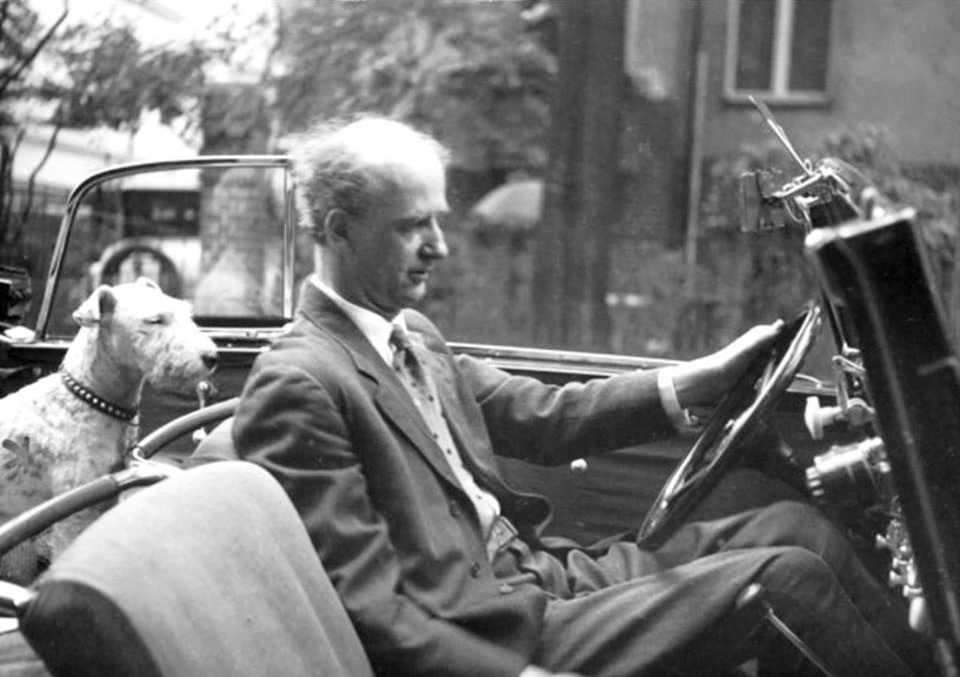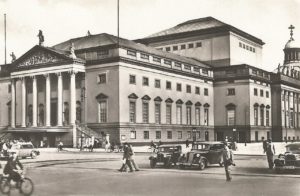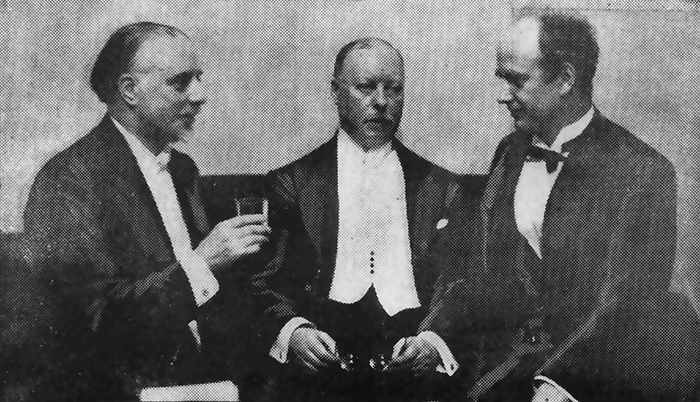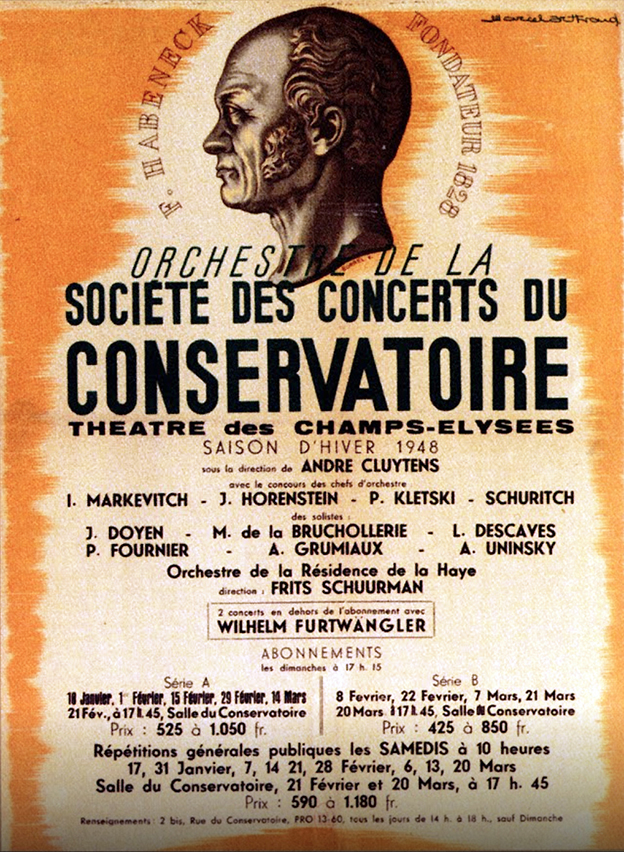Month: April 2020
News
We have already published a photo of Furtwängler in his superb Horch 830 convertible.
Here he is again at the wheel of his car, with an unexpected passenger. Any resemblance with a certain character of Hergé is purely coincidental!

A detail: from some quick research in a 1934 Berlin directory of automobile owners we learn that his 70 CV had the registration number 95495P, and that his wife had a Buick that was older but more powerful…
.
What a truly beautiful Pastorale of Beethoven, recorded at a concert of the Berlin Philharmonic in March 1944 in the hall of the Staatsoper (in between a reconstruction and a second destruction).
Benoît Lejay, in an exhaustive comparative study — that we are republishing — has noted how much more agitated it is, less well behaved, less ‘classical’ than the 1952 Vienna recording commercialised by EMI
We had rereleased it, not very well to be true, on CD. Since then, the Berliner Philharmoniker has released it as part of their voluminous collection of the 1939-1945 recordings. This should have been cause for rejoicing as being a ‘definitive’ recording. And yet we must lower our expectations; the release suffers from two pitfalls: pointless artificial stereo that is also clumsy (through phase shifting), and a failure to set the tape at the proper speed. As a result ‘their’ Pastorale is tuned to A at 448 Hz!

We shall present it in its own ‘juice’, as a mono recording, just as Friedrich Schnapp knew how to do it.
We envisage releasing it as a download (including high definition) for mid May. As always it will be possible, from the version in 16/44, CD format, to engrave a CD for traditional playback.
Lastly, note that the text of the sleeve note — of top quality as always — was written by the late Harry Halbreich.
Furtwängler was on good terms with his colleagues… with perhaps one exception (have a guess…).
Yet there is one conductor with whom his relationship was particularly cordial: Sir Thomas Beecham. A priori, however, everything seemed as though it would keep them apart: heritage, training, repertory, style, the approach to music. Nonetheless, a complicity was established between them, and Sir Thomas was particularly loyal: when Furtwängler was banned by the Nazis from touring in Great Britain, the baton was offered to Beecham, who refused. And when Furtwängler died, on the other hand, he maintained the presence of the late conductor in a concert, the programme of which was not at all typical of the Englishman’s repertory. Faithfulness…
Here is a rare snapshot taken during Beecham’s first invitation to conduct the Berlin Philharmonic, on 29 January 1930. The two conductors stand either side of Sir Horace Rumbold, United Kingdom ambassador to Germany.

We present facsimiles of concert programmes, and of course Berlin and Vienna often appear among them. Here however is a comparative rarity: a programme of Furtwängler in Paris, at the head of the Orchestre de la Société des Concerts du Conservatoire (OSCC).
Several years previously the orchestra had left the “Salle du Conservatoire”, Bergère Street, and they now performed at the Théâtre des Champs-Elysées (TCE).
Below is the poster announcing the 1948/49 season, including two Furtwängler concerts (omitting the public dress rehearsal), outside the subscription series.

You can find a lot of chocolate in Geneva, a big water fountain and even a few banks… There is also a very fine concert hall, the Victoria Hall. Despite this, see if you can find any record of Wilhelm Furtwängler’s visit to this city and this concert hall…
Here, actually, is one, one you can see: the Berlin Philharmonic Orchestra and its conductor in a snapshot taken during a concert on 8 May 1933.
Members can see this in large format in the iconography.

